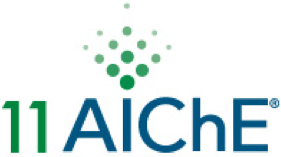

Enjoy these four keynote addresses from the 2011 Annual Meeting Plenary co-sponsored by CCR:
1. Importance of Human Capital: Why Major in Chemical Engineering? – John Anderson (beginning of video)
Innovation is driven by people who are smart, creative and assertive. One strategy for innovation in the chemical enterprise is to attract people like this to chemical engineering and chemical sciences. Opportunities for careers in technical fields are much different for today's students than five decades ago when I chose a major. Compounding the challenge is that engineering in general has lost market share of students at universities. This presentation attempts to stimulate thinking about steps that higher education and industry can take to attract future innovators to the chemical enterprise and meet their educational objectives.
2. Innovation Principles to Drive New Product and Process Growth Opportunities - Experiences from DuPont and Corning – Joseph A. Miller (25:14)
A set of innovation principles, developed while at DuPont and at Corning, were applied to new product and process innovation at Corning that enabled the enterprise to navigate and grow through two economic disruptions over the past decade. These principles will be shared and exemplified with Corning's recent materials science and related product and process innovations.
3. Novel Structures for Public-Private Partnerships: Case Studies with Medical Devices and Biopharmaceuticals – Sangtae Kim (51:37)
At a time when the growth rate in research opportunities towers over the funding capacity of traditional sources of sponsorship, universities are turning to translational research and the associated licensing revenue streams as the untapped resource to close the gap. This hope is challenged by the historical track record which shows that most universities do not have a successful track record in technology transfer. In this context, this presentation examines the current landscape for technology transfer via spin-off companies generated from university research. The classical view of a basic research phase and VC-supported development commercialization phase separated by the so called &'valley of death&' albeit simplistic, offers some insights into the high failure rates. The presentation proposes a new model for a public-private partnership with the goal of higher success rates for translational research and development. The model will be illustrated with recent case studies involving medical devices and biopharmaceuticals.
4. The Future of Fuels and Alternative Feedstocks - Recognizing Hype vs. Practical Limitations – William Banholzer (1:08:05)
The world now agrees that the ideal future requires 100% sustainable sources of energy and product feedstocks in adequate amounts to support a high standard of living for all. Which new pathways and technologies will emerge to transform our situation? This question is addressed from the perspective of the chemical industry, which was built on oil, natural gas, and coal. These have served as the major raw material feedstocks and energy sources for driving reactions and separations. The industry is now shaping its transformation to sustainable energy and is developing new materials and solutions for energy supply and conversion. Here we consider the mass and energy balances, capital investment and resource requirements of several key alternative energy and feedstock technologies These considerations determine where we can expect realistic progress toward sustainable chemistry in both the short and long term, and where we should place our investments.
